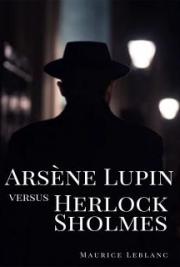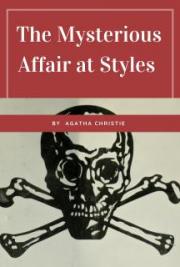Letter 14
Concerning a pressing invitation from an ever benevolently- disposed father to a prosaic but dutifully-inclined son. The recording of certain matters of no particular moment. Concerning that ultimate end which is symbolic of the inexorable wheels of a larger Destiny.
VENERATED SIRE,--It is not for the earthworm to say when and in what exact position the iron-shod boot shall descend, and this person, being an even inferior creature for the purpose of the comparison, bows an acquiescent neck to your very explicit command that he shall return to Yuen-ping without delay. He cannot put away from his mind a clinging suspicion that this arising is the result of some imperfection in his deplorable style of correspondence, whereby you have formed an impression quite opposed to that which it had been the intention to convey, and that, perchance, you even have a secret doubt whether upon some specified occasion he may not have conducted the enterprise to an ignoble, or at least not markedly successful, end. However, the saying runs, "The stone-cutter always has the last word," and you equally, by intimating with your usual unanswerable and clear-sighted gift of logic that no further allowance of taels will be sent for this one's dispersal, diplomatically impose upon an ever-yearning son the most feverish anxiety once more to behold your large and open-handed face. Standing thus poised, as it may be said, for a returning flight across the elements of separation, it is not inopportune for this person to let himself dwell gracefully upon those lighter points of recollection which have engraved themselves from time to time upon his mind without leading to any more substantial adventure worthy to record. Many of the things which seemed strange and incomprehensible when he first came among this powerful though admittedly barbarian people, are now revealed at a proper angle; others, to which he formerly imagined he had found the disclosing key, are, on the other hand, plunged into a distorting haze; while between these lie a multitude of details in every possible stage of disentanglement and doubt. As a final and painstaking pronouncement, this person has no hesitation in declaring that this country is not -as practically all our former travellers have declared--completely down-side-up as compared with our own manners and customs, but at the same time it is very materially sideways.
Thus, instead of white, black robes are the indication of mourning; but as, for the generality, the same colour is also used for occasions of commerce, ceremony, religion, and the ordinary affairs of life, the matter remains exactly as it was before. Yet with obtuse inconsistency the garments usually white--in which a change would be really noticeable--remain white throughout the most poignant grief. How much more markedly expressed would be the symbolism if during such a period they wore white outer robes and black body garments. Nevertheless it cannot be said that they are unmindful of the emblematic influence of colour, for, unlike the reasonable conviction that red is red and blue is blue, which has satisfied our great nation from the days of the legendary Shun, these pale-eyed foreigners have diverged into countless trifling imaginings, so that when the one who is now expressing his contempt for the development required a robe of a certain hue, he had to bend his mouth, before he could be exactly understood, to the degrading necessity of asking for "Drowned-rat brown," "Sunstroke magenta," "Billingsgate purple," "London milk azure," "Settling-day green," or the like. In the other signs of mourning they do not come within measurable distance of our pure and uncomfortable standard. "If you are really sincere in your regret for the one who has Passed Beyond, why do you not sit upon the floor for seven days and nights, take up all food with your fingers, and allow your nails to grow untrimmed for three years?" was a question which I at first instinctively put to lesser ones in their affliction. In every case save one I received answers of evasive purport, and even the one stated reason, "Because although I am a poor widder I ain't a pig," I deemed shallow.
I have already dipped a revealing brush into the subject of names. Were the practice of applying names in a wrong and illogical sequence maintained throughout it might indeed raise a dignified smile, but it would not appear contemptible; but what can be urged when upon an occasion one name appears first, upon another occasion last? A dignity is conferred in old age, and it is placed before the family designation borne by an honoured father and a direct line of seventeen revered ancestors. Another title is bestowed, and eats up the former like a revengeful dragon. New distinctions follow, some at one end, others at another, until a very successful person may be suitably compared to the ringed oleander snake, which has the power of growing equally from either the head or the tail. To express the matter by a definite allusion, how much more graceful and orchideous, even in a condensed fashion, would appear the designation of this selected one, if instead of the usual form of the country it was habitually set forth in the following logical and thoroughly Chinese style:- Chamberlain Joseph, Master, Mr., Thrice Wearer of the Robes and Golden Collar, One of the Just Peacemakers, Esquire, Member of the House of Law-givers, Leader in the Council of Commerce, Presider over the Tables of Provincial Government, Uprightly Honourable Secretary of the Outlying Parts.
Among the notes which at various times I have inscribed in a book for future guidance I find it written on an early page, "They do not hesitate to express their fathers' names openly," but to this assertion there stands a warning sign which was added after the following incident. "Is it true, Mr. Kong," asked a lesser one, who is spoken of as vastly rich but discontented with her previous lot, of this person upon an occasion, "is it really true that your countrymen to not consider it right to speak of their fathers' names, even in this enlightened age?" To this I replied that the matter was as she had eloquently expressed it, and, encouraged by her amiable condescension, I asked after the memory of her paternal grandsire, whose name I had frequently heard whispered in connection with her own. To my inelegant confusion she regarded me for a period as though I had the virtue of having become transparent, and then passed on in a most overwhelming excess of disconcertingly-arranged silence.
"You've done it now, Kong," said one who stood by (or, as we would express the same thought, "You have succeeded in accomplishing the undesirable"); "don't you know that the old man was in the tripe and trotter line?"
"To no degree," I replied truly. "Yet," I continued, matching his idiom with another equally facile, "wherein was this person's screw loose? Are they not openly referred to--those of the Line of Tripe and Trotter--by their descendants?" "Not in most cases," he said, with a concentration that indicated a lurking sting among his words. "Generally speaking, they aren't mentioned or taken into any account whatever. While they are alive they are kept in the background and invited to treat themselves to the Tower when nice people are expected; when dead they are fastened up in the family back cupboard by a score of ten-inch nails and three-trick Yale locks, so to speak. And in the meantime all the splash is being made on their muddy oof. See?"
I nodded agreeably, though, had the opportunity been more favourable, I would have made the feint to learn somewhat more of this secret practice of burying in the enclosed space beneath the stairs. Thus is it set forth why, after the statement, "They do not hesitate to express their fathers' names openly," it is further written, "Walk slowly! Engrave well upon your discreet remembrance the unmentionable Line of Tripe and Trotter."
Another point of comparison which the superficial have failed to record is to be found in the frequent encouragements to regard The Virtues which are to be seen, like our own Confucian extracts, freely inscribed on every wall and suitable place about the city. These for the most part counsel moderation in taking false oaths, in stepping heedlessly upon the unknown ground, in following paths which lead to doubtful ends, and other timely warnings. "Beware a smoke-breathing demon," is frequently cast across one's path upon a barrier, and this person has never failed to accept the omen and to retrace his steps hastily without looking to the right or the left. Even our own national caution is not forgotten, although to conform to barbarian indolence it is written, "Slowly, slowly; drive slowly." "Keep to the Right" (or, "Abandon that which is evil," as the analogy holds,) is perhaps the most frequently displayed of all, and doubtless many charitable persons obtain an ever-accruing merit by hanging the sign bearing these words upon every available post. Others are of a stern and threatening nature, designed to make the most hardened ill-doer pause, as--in their own tongue--"Rubbish may be shot here"; which we should render, "At any moment, and in such a place as this, a just doom and extinction may overtake the worthless." This inscription is never to be seen except in waste expanses, where it points its significance with a multiplied force. There is another definite threat which is lavishly set out, and so thoroughly that it may be encountered in the least frequented and almost inaccessible spots. This, as it may be translated, reads, "Trespass not the forbidden. The profligate may flourish like the gourd for a season, but in the end assuredly they will be detected, and justice meted out with the relentless fury of the written law."
In a converse position, the wide difference in the ceremonial forms of retaliatory invective has practically disarmed this usually eloquent person, and he long since abandoned every hope of expressing himself with any satisfaction in encounters of however acrimonious a trend. At first, with an urbane smile and gestures of dignified contempt, he impugned the authenticity of the Ancestral Tablets of those with whom he strove, in an unbroken stream of most bitter contumely. Finding them silent under this reproach, he next lightly traced their origin back through generations of afflicted lepers, deformed ape-beings, and Nameless Things, to a race of primitive ghouls, and then went on in relentless fluency to predict an early return in their descendants to the condition of a similar state. For some time he had a well-gratified assurance that those whom he assailed were so overwhelmed as to be incapable of retort, and in this belief he never failed to call upon passers-by to witness his triumph; but on the fourth occasion a young man whom I had thus publicly denounced for a sufficient though forgotten reason, after listening courteously to my venomous accusations, bestowed a twocash piece upon me and passed on, remarking that it was hard, and those around, also, would have added from their stores had it been permitted. From this time onward I did not attempt to make myself disagreeable either in public or to those whom I esteemed privately. On the other hand, the barbarian manner of retort did not find me endowed by nature to parry it successfully. Quite lacking in measured periods, it aims, by an extreme rapidity of thrust and an insincerity of sequence, to entangle the one who is assailed in a complication of arising doubts and emotions. "Who are you,--no one but yourself," exclaimed a hireling of hungdog expression who claimed to have exchanged pledging gifts with a certain maiden who stood, as it were, between us, and falling into the snare, I protested warmly against the insult, and strove to disprove the inference before the paralogism lay revealed. Throughout the whole range of the Odes, the Histories, the Analects, and the Rites what recognised formula of rejoinder is there to the taunt, "Oh, go and put your feet in mustard and cress"; or how can one, however skilled in the highest Classics, parry the subtle inconsistencies of the reproach, "You're a nice bit of orl right, aren't you? Not arf, I don't think."
Among the arts of this country that of painting upon canvas is held in repute, but to a person associated with the masterpieces of the Ma epoch these native attempts would be gravity-dispelling if they were not too reminiscent of the torture chamber. It is rarely, indeed, that even the most highly-esteemed picture-makers succeed in depicting every portion of a human body submitted to their brush, and not infrequently half of the face is left out. Once, when asked by a paint-applier who was entitled to append two signs of exceptional distinction behind his name, to express an opinion upon a finished work, I diffidently called his attention to the fact that he had forgotten to introduce a certain exalted one's left ear. "Not at all, Mr. Kong," he replied, with an expression of ill-merited self-satisfaction, "but it is hidden by the face." "Yet it exists," I contended; "why not, therefore, press it to the front at all hazard, rather than send so great a statesman down into the annals of posterity as deformed to that extent?" "It certainly exists," he admitted, "and one takes that for granted; but in my picture it cannot be seen." I bowed complaisantly, content to let so damaging an admission point its own despair. A moment later I continued, "In the great Circular Hall of the Palace of Envoys there is a picture of two camels, foot-tethered, as it fortunately chanced, to iron rings. Formerly there were a drove of eight--the others being free--so exquisitely outlined in all their parts that one night, when the door had been left incautiously open, they stepped down from the wall and escaped to the woods. How deplorable would have been the plight of these unfortunate beings, if upon passing into the state of a living existence they had found that as a result of the limited vision of their creator they only possessed twelve legs and three whole bodies among them."
Perchance this tactfully-related story, so applicable to his own deficiencies, may sink into the imagination of the one for whom it was inoffensively unfolded. Yet doubt remains. Our own picture-judgers take up a position at the side of work when they with to examine its qualities, retiring to an ever-diminishing angle in order to bring out the more delicate effects, until a very expert and conscientious critic will not infrequently stand really behind the picture he is considering before he delivers a final pronouncement. Not until these native artists are able to regard their crude attempts from the other side of the canvas can they hope to become equally proficient. To this fatal shortcoming must be added that of insatiable ambition, which prompts the young to the portrayal of widely differing subjects. Into the picture-room of one who might thus be described this person was recently conducted, to pass an opinion upon a scene in which were depicted seven men of varying nationalities and appropriately garbed, one of the opposing sex carrying a lighted torch, an elephant reclining beneath a fruitful vine, and the President of a Republic. For a period this person resisted the efforts of those who would have questioned him, withdrawing their attention to the harmonious lights upon the river mist floating far below, but presently, being definitely called upon, he replied as follows: "Mih Ying, who was perhaps the greatest of his time, spent his whole life in painting green and yellow beetles in the act of concealing themselves beneath dead maple leaves upon the approach of day. At the age of seventy-five he burst into tears, and upon being approached for a cause he exclaimed, 'Alas, if only this person had resisted the temptation to be diffuse, and had confined himself to green beetles alone, he might now, instead of contemplating a misspent career, have been really great.' How much less," I continued, "can a person of immature moustaches hope to depict two such conflicting objects as a recumbent elephant and the President of a Republic standing beneath a banner?"
Upon the temptation to deal critically with the religious instincts of the islanders this person draws an obliterating brush. As practically every traveller who has honoured our unattractive land with his effusive presence has subsequently left it in a printed record that our ceremonies are grotesque, our priesthood ignorant and depraved, our monasteries and sacred places spots of plague upon an otherwise flower-adorned landscape, and our beliefs and sacrifices only worthy to exist for the purpose of being made into jest-origins by more refined communities, the omission on this one's part may appear uncivil and perhaps even intentionally discourteous. To this, as a burner of joss-sticks and an irregular person, he can only reply by a deprecatory waving of both hands and a reassuring smile.
With the two-sided memories of many other details hanging thickly around his brush, it would not be an achievement to continue to a practically inexhaustible amount. As of the set days when certain things are observed, among which fall the first of the fourth month (but that would disclose another involvement), another when flat cakes are partaken of without due caution, another when rounder cakes are even more incautiously consumed, and that most brightlyilluminated of all when it is permissible to embrace maidens openly, and if discreetly accomplished with no overhanging fear of ensuing forms of law, beneath the emblem of a suspended branch, in memory of the wisdom of certain venerable sages who were doubtless expert in the practice. As of the inconvenient custom when two persons are walking together that they should arrange themselves side by side, to the obvious discomfort of others, the sweeping away of all opportunities for agreeable politeness, and the utter disregard of the time-honoured example of the sagacious water-fowl. As of the inconsistency of refusing, even with contempt, to receive our most intimate form of regard and use this person's lip-cloth after a feast, yet the mulish eagerness in that same youth to drink from a cup previously used by a lesser one. As of the precision (which still remains a cloud of doubt,) with which creatures so intractable as the bull are successfully trained to roar aloud at certain gongstrokes of the day as an agreed signal. As of the streets in movement, the lights at evening, and the voices of those unseen. As of these and as of other matters, so multitudinous that they crowd about this person's mind like the assembling swallows, circling above the deserted millet fields before they turn their beaks to the sea, and dropping his brush (perchance with an acquiescent sigh), he, also, kow-tows submissively to a blind but appointed destiny, and prepares to seek a passage from an alien land of sojourning.
With the impetuous craving of an affectionate son to behold a revered sire, intensified by the fact that he has reached the innermost lining of his sleeve; with affectionate greetings towards Ning, Hia-Fa, and T'ian Yen, and an assurance that they have never been really absent from his thoughts.
KONG HO.







